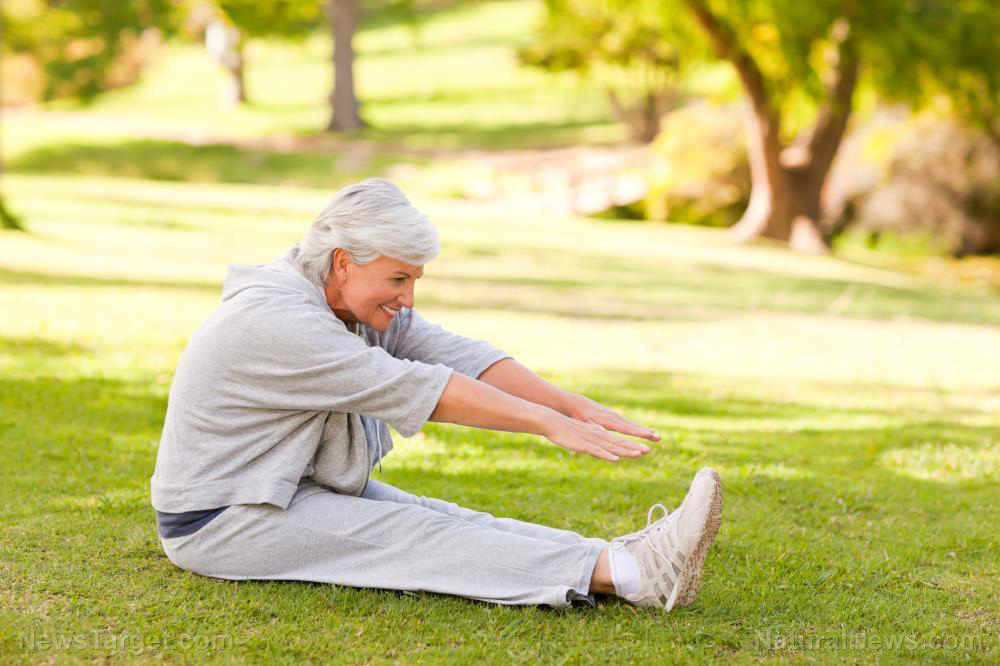Learn about brain health and nootropics to boost brain function
Regular exercise can keep dementia at bay – adding more hours reduces the brain’s aging process



(Natural News) Dementia is one of the most common problems older adults encounter, but no matter how common it is, it can be preventable. One of the best ways to keep dementia at bay is to exercise regularly, according to a study published in the journal JAMA Network Open. This is good news for those who are trying to stay fit but aren’t exactly marathon runners or athletes.
Researchers at Boston University looked at data from an ongoing heart health study in the U.S. to analyze the effects of exercise on dementia risk. They discovered people who do more physical activity tend to have a slower brain aging process and have a lower chance of developing dementia later in life.
Moreover, every additional hour could remove another year off someone’s brain age. Therefore, someone doing three hours of exercise every week could, over time, maintain a brain three years younger than the average for their age.
The researchers also found that doing any exercise, even if it is as light as walking, could be enough to build up and provide benefits — as long as it is done regularly. Low-intensity exercises that could get the heart, lungs, and muscles working harder are all beneficial.
“Every additional hour of light-intensity physical activity was associated with higher brain volumes, even among individuals not meeting current physical activity guidelines,” explained Dr. Nicole Spartano, one of the researchers of the study.
While it was not clear how much exercise should be done for optimal protection against dementia, the researchers suggested doing at least 250 minutes of physical activity every week. The researchers said that these findings are consistent with the notion that potential benefits of exercise on brain aging may build up at a lower, more achievable level of intensity.
| Discover how to prevent and reverse heart disease (and other cardio related events) with this free ebook: Written by popular Natural News writer Vicki Batt, this book includes everything you need to know about preventing heart disease, reversing hypertension, and nurturing your cardiac health without medication. Learn More. |
How exercise improves brain function
Exercise affects the brain in ways – both directly and indirectly – that protect memory and thinking. For one, researchers at the University of British Columbia found that regular aerobic exercise can increase the size of the hippocampus, which is the area of the brain responsible for verbal memory and learning.
Exercise also reduces insulin resistance, fights inflammation, and stimulates the release of growth factors, which are chemicals in the brain that influence the health of brain cells, the growth of new blood vessels in the brain, and even the number and survival of new brain cells. Exercise can also improve mood and sleep, as well as relieves stress and anxiety. Problems in these aspects are typically the cause or contributors to cognitive decline.
Simple exercises that help you become more physically active
Have no idea where to start being more physically active? Here are some easy, no-effort exercises that you can add to your daily routine:
- Window shopping instead of online shopping.
- Cooking meals instead of ordering food for delivery.
- Instead of ordering for groceries online, go to your community market.
- Jogging in place.
- Stretching while watching your favorite television show.
- Playing some upbeat music when you wake up in the morning to help you become more energized.
- Stretching your legs and arms and rotating your head every now and then during long sitting hours at the office.
- Taking the stairs instead of taking the elevator and escalator.
- Taking the stairs in the first few floors and then using the elevator a few floors down.
- Try gardening. This can help your joints and encourage you to eat natural, healthy vegetables and fruits.
- Visiting the park instead of malls during weekends.
- Walking or biking instead of taking a cab or driving to a store near your house.
For more news on brain protection and dementia prevention, visit Dementia.news.
Sources include:
Click here to view full article